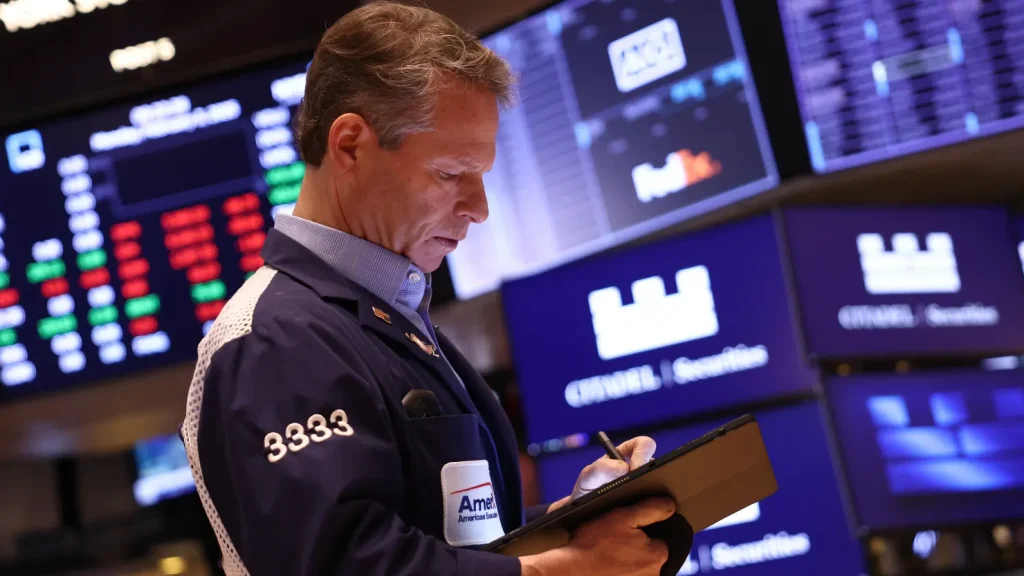
The Dow Jones Industrial Average on Monday staged a major comeback, recovering steep losses from earlier in the session after President Donald Trump said tariffs against Mexico would be paused for one month.
The 30-stock average ended the day down 122.75 points, or 0.28%, to close at 44,421.91. At its lows of the day, the Dow was down 665.6 points, or 1.5%. The S&P 500 slid 0.76% to 5,994.57, and the Nasdaq Composite slumped 1.2% to 19,391.96.
The iShares MSCI Mexico ETF (EWW), which tracks Mexican stocks, rebounded to close more than 2% higher.
Stocks initially dropped Monday after Trump hit Canada and Mexico with a 25% levy on imported goods over the weekend. The U.S. also issued a 10% tariff on Chinese goods. The news sparked a major global sell-off, with equities in the U.S. and abroad tumbling.
But a post from Mexico’s President Claudia Sheinbaum following a conversation with Trump appeared to calm investors.
“We had a good conversation with President Trump with great respect for our relationship and sovereignty; we reached a series of agreements,” Sheinbaum wrote in a post, according to a translation from Spanish.
Trump later confirmed the temporary deal on Truth Social. “It was a very friendly conversation wherein she agreed to immediately supply 10,000 Mexican Soldiers on the Border separating Mexico and the United States,” he wrote, adding that negotiations for a more permanent deal would continue for the month.
The pausing of the tariffs on Mexico reinforced the bullish view of some investors that tariffs for all countries could be Trump’s negotiating tool and that investors shouldn’t overreact initially.
“Call us deluded, but we still think that permanent tariffs on the U.S.‘s allies (Canada, Mexico) will not be a thing,” said Thierry Wizman, global FX and rates strategist at Macquarie. “That’s because concessions are an ‘easier’ way to deal with Trump’s ‘problems’ (from a cost-benefit and game-theoretic perspective), and Trump likes to make ‘deals’. Political and market pressure will also weigh on the parties to make concessions, as in 2018.”























